第21章 CHAPTER VI.(3)
Two old peasants appeared, and Schell commanded them to run to the village, and tell a magistrate to come immediately with a cart. "Ihave seized this knave," added he, "who has killed my horse, and in the struggle I have put out my ankle; however, I have wounded and bound him; fly quickly, bring a cart, lest he should die before he is hanged."As for me, I suffered myself to be led, as if half-dead, into the house. A peasant was despatched to the village. An old woman and a pretty girl seemed to take great pity on me, and gave me some bread and milk: but how great was our astonishment when the aged peasant called Schell by his name, and told him he well knew we were deserters, having the night before been at a neighbouring alehouse where the officer in pursuit of us came, named and described us, and related the whole history of our flight. The peasant knew Schell, because his son served in his company, and had often spoken of him when he was quartered at Habelschwert.
Presence of mind and resolution were all that were now left. Iinstantly ran to the stable, while Schell detained the peasant in the chamber. He, however, was a worthy man, and directed him to the road toward Bohemia. We were still about some seven miles from Glatz, having lost ourselves among the mountains, where we had wandered many miles. The daughter followed me: I found three horses in the stable, but no bridles. I conjured her, in the most passionate manner, to assist me: she was affected, seemed half willing to follow me, and gave me two bridles. I led the horses to the door, called Schell, and helped him, with his lame leg, on horseback. The old peasant then began to weep, and beg I would not take his horses; but he luckily wanted courage, and perhaps the will to impede us; for with nothing more than a dung-fork, in our then feeble condition, he might have stopped us long enough to have called in assistance from the village.
And now behold us on horseback, without hats or saddles; Schell with his uniform scarf and gorget, and I in my red regimental coat.
Still we were in danger of seeing all our hopes vanish, for my horse would not stir from the stable; however, at last, good horseman-like, I made him move: Schell led the way, and we had scarcely gone a hundred paces, before we perceived the peasants coming in crowds from the village.
As kind fortune would have it, the people were all at church, it being a festival: the peasants Schell had sent were obliged to call aid out of church. It was but nine in the morning; and had the peasants been at home, we had been lost past redemption.
We were obliged to take the road to Wunshelburg, and pass through the town where Schell had been quartered a month before, and in which he was known by everybody. Our dress, without hats or saddles, sufficiently proclaimed we were deserters: our horses, however, continued to go tolerably well, and we had the good luck to get through the town, although there was a garrison of one hundred and eighty infantry, and twelve horse, purposely to arrest deserters. Schell knew the road to Brummem, where we arrived at eleven o'clock, after having met, as I before mentioned, Captain Zerbst.
He who has been in the same situation only can imagine, though he never can describe, all the joy we felt. An innocent man, languishing in a dungeon, who by his own endeavours, has broken his chains, and regained his liberty, in despite of all the arbitrary power of princes, who vainly would oppose him, conceives in moments like these such an abhorrence of despotism, that I could not well comprehend how I ever could resolve to live under governments where wealth, content, honour, liberty, and life all depend upon a master's will, and who, were his intentions the most pure, could not be able, singly, to do justice to a whole nation.
Never did I, during life, feel pleasure more exquisite than at this moment. My friend for me had risked a shameful death, and now, after having carried him at least twelve hours on my shoulders, Ihad saved both him and myself. We certainly should not have suffered any man to bring us, alive, back to Glatz. Yet this was but the first act of the tragedy of which I was doomed the hero, and the mournful incidents of which all arose out of, and depended on, each other.